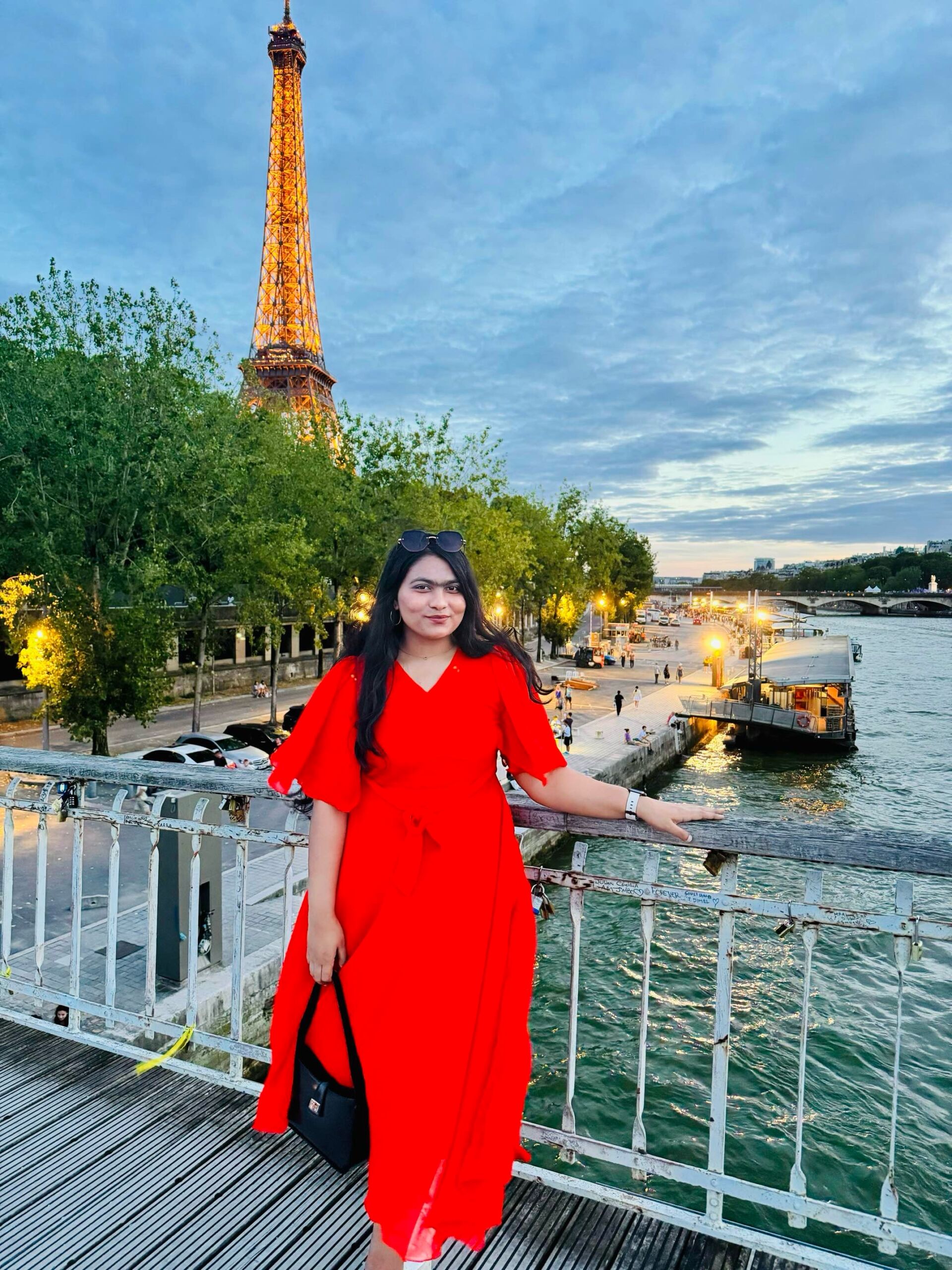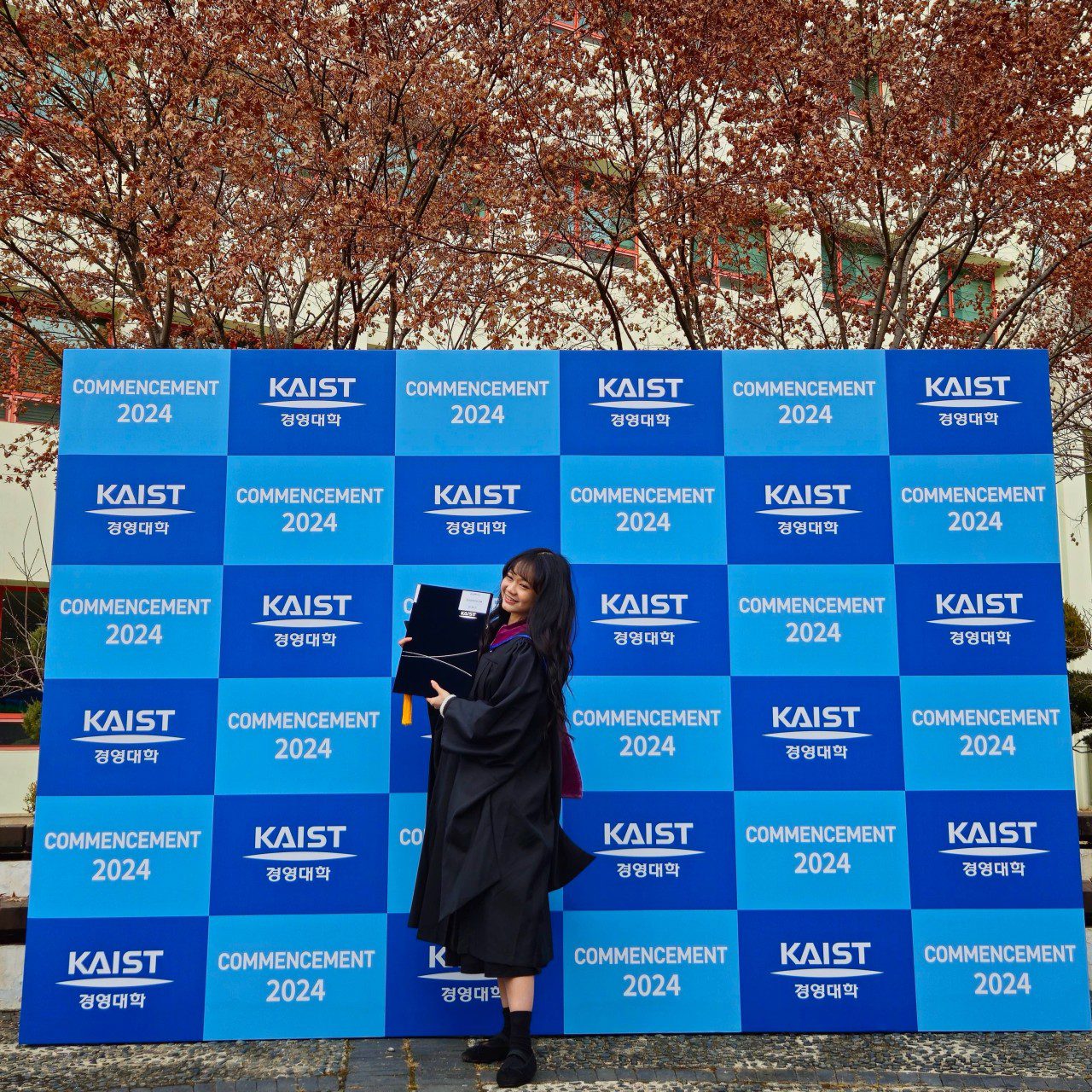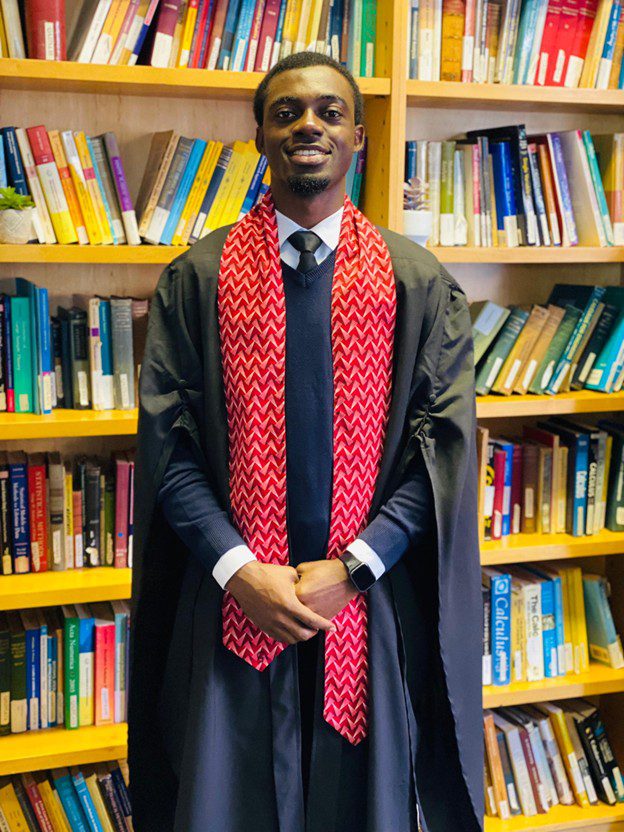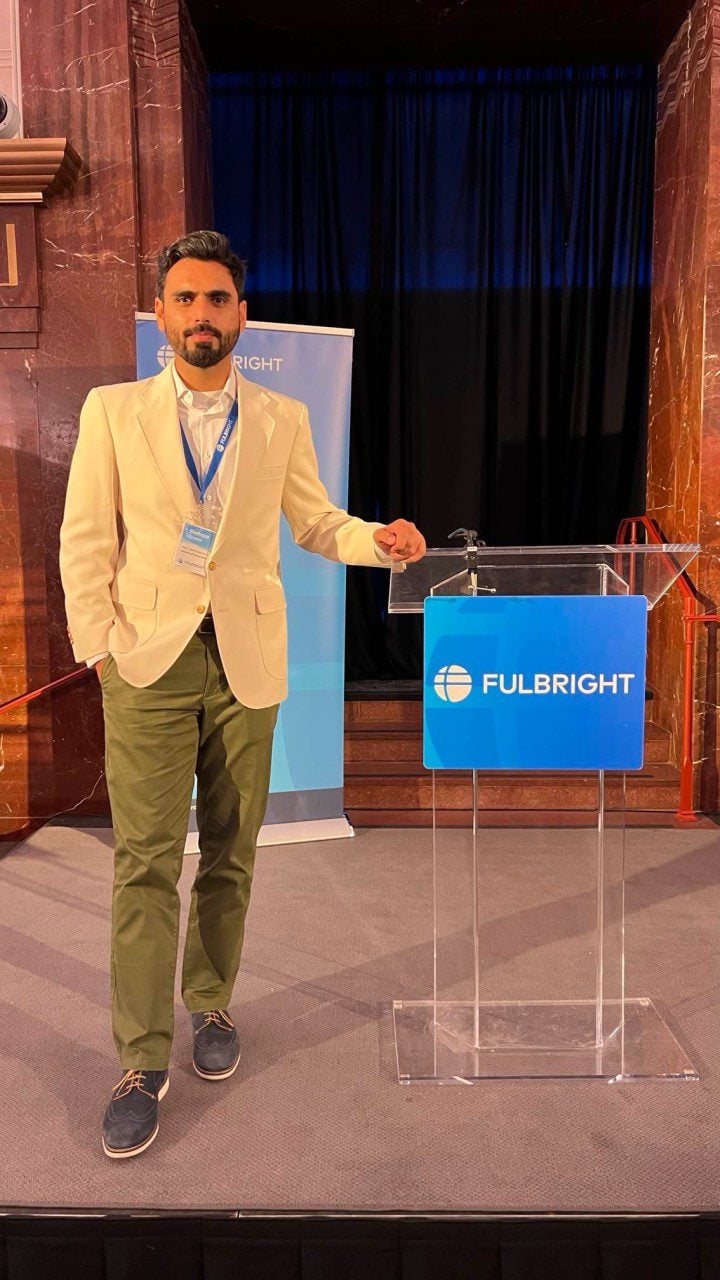How a Bangladeshi Electrical Engineering Graduate Secured the Fully Funded Erasmus Mundus Scholarship to Study Intelligent Field Robotic Systems in Spain and Hungary
Universities: Universitat de Girona (UdG), Spain (1st & 2nd semester), Eötvös Loránd University (ELTE), Hungary (3rd semester), Thesis: HUN-REN SZTAKI, Budapest, Hungary
Degree: MSc in Intelligent and Autonomous Robotic Systems
Previous Education: BSc in Electrical, Electronic, and Communication Engineering (EECE), MIST, Bangladesh
Scholarship: Erasmus Mundus Scholarship– Fully funded (tuition, stipend, travel)

The Journey
Hello everyone! I’m Syma Afsha, originally from Bangladesh, and currently on an exciting journey in the world of Robotics and AI. I’m pursuing my master’s in Intelligent and Autonomous Robotics Systems (IFRoS) through the prestigious Erasmus Mundus program.
As part of the Erasmus Mundus Joint Master in Intelligent Field Robotic Systems (IFRoS), my academic adventure has taken me across multiple countries. I completed my first two semesters in Spain at Universitat de Girona (UdG) and my third semester in Hungary at Eötvös Loránd University (ELTE). Currently, I am working on my master’s thesis in Reinforcement Learning for robotic tasks at HUN-REN SZTAKI (Institute for Computer Science and Control) in Budapest, Hungary. This multi-country experience has given me the opportunity to immerse myself in diverse academic environments, explore different research perspectives, and gain hands-on experience in field robotics and AI.
With a strong foundation in Electrical, Electronic, and Communication Engineering, I earned my Bachelor of Science (B.Sc.) from the Military Institute of Science and Technology (MIST), Bangladesh. Throughout my academic and research journey, I have been passionate about Mobile Robotics, Autonomous Vehicles, and Artificial Intelligence, constantly exploring innovative solutions to push the boundaries of intelligent systems.
Educational Background
Before joining the Erasmus Mundus Joint Master in Intelligent Field Robotic Systems (IFRoS), I completed my Bachelor’s in Electrical, Electronic, and Communication Engineering (EECE) at MIST, Bangladesh.
From the start of my undergraduate studies, I was deeply invested in Research, working as part of a research group focused on Activity Recognition and Sign Language Translation. These projects solidified my passion for Artificial Intelligence (AI), as I witnessed firsthand how AI could be used to interpret human actions and bridge communication gaps. That’s when I knew I wanted to dive deeper into the field.
For my bachelor’s thesis, I worked on Detection and Classification of Sensitive Audio-Visual Content for Automated Film Censorship and Rating, a project that further fueled my curiosity. It pushed me to explore how AI can go beyond activity recognition to make intelligent, real-world decisions.
These research experiences, combined with the strong technical foundation I built at MIST, gave me the perfect stepping stone for the multi-country Erasmus Mundus experience. Studying across Spain and Hungary, I’ve had the opportunity to approach AI and robotics from different perspectives. Now, I’m seeing how my passion for these fields can come together whether it’s enabling robots to perceive, learn, and interact with their environment or developing intelligent systems that can adapt to real-world challenges.
It’s been an incredible journey so far, and I’m excited to keep pushing the boundaries of what AI can achieve in robotics!
How Did You Prepare to Apply for the Scholarship(s)?
I began by researching the Intelligent and Autonomous Robotics Systems (IFROS) program in detail to understand its curriculum, faculty, and research opportunities. Since the program aligns perfectly with my research interests, I made sure to highlight this alignment in my application.
Here’s how I approached the application process:
- Motivation Letter: This was the most critical part of my application. I ensured that it:
• Clearly explained my passion for robotics and AI.
• Highlighted my academic and research experience.
• Demonstrated why I was an ideal candidate for the Erasmus Mundus program.
• Explained how I would contribute to the program and my future goals. - CV: I formatted my CV to be clear and concise, highlighting:
• Academic achievements (grades, research projects, thesis work).
• Internships and work experience related to robotics and AI.
• Publications.
• Technical skills (Deep Learning, Computer Vision, etc.). - Recommendation Letters: I ensured that my recommendations came from professors and mentors who were familiar with my work and could strongly support my application. A well-written recommendation letter can add significant credibility to your profile.
- Academic Transcripts: I ensured all my transcripts were correctly translated and formatted as required by the application.
I considered other scholarships, but Erasmus Mundus stood out because:
- Fully Funded: It covers tuition fees, travel expenses, and a generous monthly stipend, making it financially more attractive than many other scholarships.
- Prestigious and Competitive: It is one of the most competitive scholarships in Europe, awarded to the best candidates globally.
- International Experience: Erasmus Mundus allows students to study in multiple countries, providing a diverse academic and cultural experience.
- Networking Opportunities: It offers the chance to collaborate with leading researchers and institutions in Europe.
Exploring Europe While Studying: Since the Erasmus Mundus program is based in Europe, it’s easy to travel within the Schengen area. This means: - No extra visas are needed for most countries.
- Cheap and efficient transportation (flights, trains, buses).
- Countless travel opportunities on weekends and holidays.
For a travel enthusiast, this is the ultimate adventure! I had the incredible opportunity to visit multiple countries while studying for my degree, experience different cultures, try new cuisines, and make lifelong memories, all while pursuing my academic goals.
The Erasmus Mundus Scholarship is one of the most competitive scholarships in Europe, with thousands of applicants worldwide competing for a limited number of spots. The selection process is rigorous, as they look for candidates with strong academic backgrounds, research experience, leadership potential, and a clear motivation for joining the program.
What made my application stand out was a strong motivation letter that clearly articulated my passion for AI and Field robotics, along with my research experience in relevant fields. My academic excellence, including a strong CGPA and relevant coursework, further strengthened my profile. Additionally, my well-structured CV highlighted internships, technical skills, and research contributions, while strong recommendation letters from professors added credibility. I also showcased my international adaptability and willingness to study in multiple countries, which aligned well with Erasmus Mundus’ global focus. Lastly, I demonstrated a clear career vision, explaining how this program would enhance my expertise and open doors for future opportunities in AI and robotics research and development, making my application a strong contender.
Could You Briefly Discuss the Erasmus Mundus Program You Pursued and the Specific Field of Study It Focused On?
The Intelligent Field Robotic Systems (IFRoS) (IFRoS Master) Erasmus Mundus Master’s Program is a prestigious and highly specialized initiative that brings together some of the most renowned European universities to advance the field of robotics, artificial intelligence, and autonomous systems. One of the key strengths of IFRoS is its multi-country structure, allowing students to gain expertise from different institutions, each specializing in a particular aspect of robotics research and development.
At the University of Girona (UdG) in Spain, students begin their journey by developing a strong foundation in field robotics. UdG is home to the Computer Vision and Robotics Research Group (VICOROB), a globally recognized center for underwater robotics, medical imaging, and autonomous navigation systems. The university has led numerous European research projects and provides hands-on experience with autonomous underwater vehicles (AUVs), making it an excellent starting point for IFRoS students.
Moving to the University of Zagreb (UNIZG) in Croatia, students engage with advanced research in aerial robotics, swarm intelligence, and human-robot interaction. UNIZG hosts the Laboratory for Robotics and Intelligent Control Systems (LARICS), which has made significant contributions to drone swarm research, multi-robot coordination, and industrial automation. Students here gain practical exposure to autonomous drones, robotic arms, and intelligent perception systems, bridging the gap between theoretical knowledge and real-world application.
At Eötvös Loránd University (ELTE) in Hungary, the focus shifts towards autonomous vehicles, self-driving technology, and sensor fusion. ELTE’s Department of Robotics is known for its work in artificial intelligence, machine learning, and real-time data processing, equipping students with the necessary tools to contribute to the future of smart transportation and autonomous navigation. As part of their industry exposure, students visit Bosch Hungary, a global leader in automotive and industrial technologies, where they gain insights into cutting-edge research in self-driving cars, industrial automation, and AI-powered mobility solutions. Furthermore, ELTE provides access to Hungary’s thriving industrial hub, where students can connect with leading robotics and AI companies, further strengthening their career prospects and industry collaboration.
The multidisciplinary approach of IFRoS ensures that students gain expertise not only in robotics hardware, perception, and control but also in the software and AI-driven decision-making algorithms that power these intelligent systems. Beyond academics, IFRoS fosters an international and research-driven environment, encouraging collaboration with leading robotics laboratories, European industry partners, and global research institutions. This dynamic structure, combined with cutting-edge lab facilities, real-world applications, and hands-on projects, prepares students for careers in robotics research, autonomous system development, and AI-driven automation industries. With fully funded travel opportunities across multiple countries, access to top-tier faculty, and exposure to state-of-the-art robotic technologies, the IFRoS program is an unparalleled experience for students looking to excel in the field of intelligent and autonomous robotic systems.
How Did the Cost of Living Vary Across the Countries You Studied In? Which Country Was the Most Affordable or Expensive, and How Did You Manage Financially?
The cost of living varied between Spain and Hungary during my IFRoS Erasmus Mundus program, with each country offering different financial considerations.
Spain: Moderately Expensive Due to Hostel Stay (Girona, Catalonia): While Spain is generally considered affordable compared to other Western European countries, my experience was slightly different because I stayed in a student hostel, which made my living costs moderately high. Hostels often include additional services and amenities, which can increase expenses compared to renting a shared apartment. However, outside of my accommodation costs, daily expenses such as groceries and public transportation were quite manageable. Girona, despite being in Catalonia, had local markets and affordable food options, making it easier to control expenses. Many students also preferred walking or cycling to reduce transportation costs. Overall, if I had chosen a shared apartment, my cost of living in Spain would have been cheaper than what I experienced in the hostel.
Hungary: The Most Affordable Option (Budapest, ELTE): In Budapest, Hungary, the cost of living was significantly lower than in Spain, making it the most budget-friendly location I studied in. Accommodation was cheaper, particularly for students renting shared apartments or dormitories. Groceries, dining out, and transportation were also much more affordable. Budapest’s public transport system was efficient and cost-effective, allowing students to move around the city with ease. The affordability of entertainment, cultural activities, and even travel within Hungary made it much easier to enjoy life without financial strain.
Overall, Spain was moderately expensive due to my hostel accommodation, but it could have been more affordable if I had chosen a shared apartment. Hungary, on the other hand, was the most budget-friendly country, allowing for a more comfortable financial situation. However, with proper budgeting and financial planning, I was able to manage my expenses effectively in both countries while making the most of my Erasmus Mundus experience.
Did You Face Any Language Barriers, and if So, How Did You Overcome Them? Did the Language of Instruction Change From One Country to Another?
During my Erasmus Mundus IFROS program, I did not face significant language barriers, as the language of instruction was English in all the universities I studied in. However, living in different countries meant encountering local languages in daily life, but my experiences were overwhelmingly positive.
In Spain, I found that the local people were extremely friendly and helpful. Even when I didn’t understand certain words or phrases in Spanish or Catalan, locals were always willing to use Google Translate or explain things in simple terms to help me understand. This made my experience in Girona incredibly smooth and enjoyable. Despite not knowing fluent Spanish, I never felt isolated, as people were accommodating and welcoming.
In Hungary, the situation was even easier since most people spoke English very well, especially in Budapest. Whether it was in university, public transportation, restaurants, or shops, I rarely encountered any difficulties communicating. This made daily life convenient, and I didn’t feel the need to learn Hungarian beyond a few basic phrases for politeness.
Even while traveling to different countries across Europe, I did not face any major language barriers. English is widely spoken in most cities, and whenever I encountered a situation where English wasn’t commonly used, Google Translate was a quick and effective solution.
Overall, I had a seamless language experience throughout my Erasmus Mundus journey. The use of English as the primary language of instruction, combined with the helpful nature of locals and widespread digital translation tools, made adapting to different countries smooth and enjoyable.
Would You Recommend the Erasmus Mundus Program to Others? What Advice Would You Give to Someone Considering This Scholarship?
Absolutely! I would highly recommend the Erasmus Mundus program to anyone looking for a world-class education, international exposure, and the opportunity to travel across multiple countries. The program is not just about academics; it’s a life-changing experience that allows students to study in top universities, engage in cutting-edge research, and immerse themselves in different cultures. It provides full financial support, covering tuition, travel, and living expenses, making it one of the most prestigious and sought-after scholarships in Europe.
Why You Should Consider Erasmus Mundus?
-
-
- High-Quality Education – You get to study at some of the best universities in Europe with access to top researchers and advanced facilities.
- Multi-Country Experience – You will have the unique opportunity to study in at least two different countries, experiencing different education systems and cultural environments.
- Fully Funded – The scholarship covers tuition, travel expenses, and a generous monthly stipend, allowing you to focus entirely on your studies and personal growth.
- Global Networking & Career Opportunities – You will build strong connections with international students, professors, and industry professionals, opening doors to research collaborations and job opportunities worldwide.
- Personal Growth & Travel – Living in different countries challenges you to adapt, learn new languages, and embrace diverse cultures, making you more independent and globally aware.Advice for Future Applicants
-
-
-
- Start Early: The application process is competitive, so begin preparing several months in advance to perfect your documents.
- Write a Strong Motivation Letter: Your motivation letter is the most crucial part of your application. Clearly explain why you want to join Erasmus Mundus, how it aligns with your career goals, and what makes you an ideal candidate. Make it personal, specific, and compelling.
- Highlight Relevant Experience: Showcase your academic excellence, research projects, internships, and technical skills related to your field of study. Demonstrating practical experience will make your application stronger.
- Obtain Strong Recommendation Letters: Choose professors, mentors, or employers who know your work well and can provide detailed insights into your strengths, research skills, and potential for success in the program.
- Customize Your CV: Your CV should be well-structured, concise, and tailored to highlight your academic achievements, research experience, and leadership skills.
- Be Open to Cultural Adaptation: Since you will be studying in multiple countries, be flexible, open-minded, and ready to embrace different cultures and ways of life.
- Use Online Resources: Check the official Erasmus Mundus website, alumni experiences, and forums to get insights into the program and application process.
-
Erasmus Mundus is not just a scholarship, it’s an adventure and an opportunity of a lifetime. It provides academic excellence, professional growth, cultural immersion, and the chance to build an international career. If you are passionate about your field and eager to explore the world, this program is one of the best opportunities you can get.
Looking Back, Would You Have Done Anything Differently During Your Time in the Program?
Reflecting on my Erasmus Mundus IFROS journey, I am incredibly grateful for the experiences, knowledge, and friendships I gained. However, if I had the chance to do something differently, I would have started learning the local languages earlier.
Although English was sufficient for academic purposes and daily life, learning Spanish and Hungarian would have enriched my experience even more. In Spain, locals were always friendly and accommodating, often using Google Translate to help with communication, but knowing basic Spanish or Catalan would have allowed me to connect more deeply with the local culture and navigate daily interactions with greater ease. Similarly, in Hungary, while most people in Budapest spoke English well, having some Hungarian language skills could have made my interactions more engaging, especially in non-touristic areas.
Even just learning common phrases beforehand would have helped me blend in more with the local communities, making social interactions and cultural experiences even richer. Looking back, I see how language plays a key role in cultural immersion, and I would encourage future Erasmus students to pick up some basics of the local languages to make their journey even more fulfilling.
I hope my story can help future students who are considering applying for the Erasmus Mundus program and studying in Europe. This journey has been one of the most enriching and life-changing experiences of my life, both academically and personally. Beyond the world-class education and research opportunities, Erasmus Mundus offers a chance to explore different cultures, travel across multiple countries, and build an international network of friends and professionals. If you’re thinking about applying, don’t wait—start early and give it your best shot! This program is not just about studying; it’s about growing, adapting, and experiencing the world in a way that few other scholarships can offer. Guys, don’t be late, this will be the best life experience ever! Thank you!
Want to submit your
scholarship journey?
Submit Your Story Here!
More Scholarship Recipients

My name is Vania Estrellita Soegiarto, and I am from Indonesia. I pursued a Finance MBA at KAIST Business School in South Ko .... Read more

Hello, I’m Toyeeb Olamilekan Abubakar from Nigeria. I earned a Bachelor of Science degree in Statistics from the Universit .... Read more

My name is Shehryar Jafar, and I’m from Karachi, Pakistan. I’m currently a PhD student in Electrical Engineering at the .... Read more

Leave A Comment